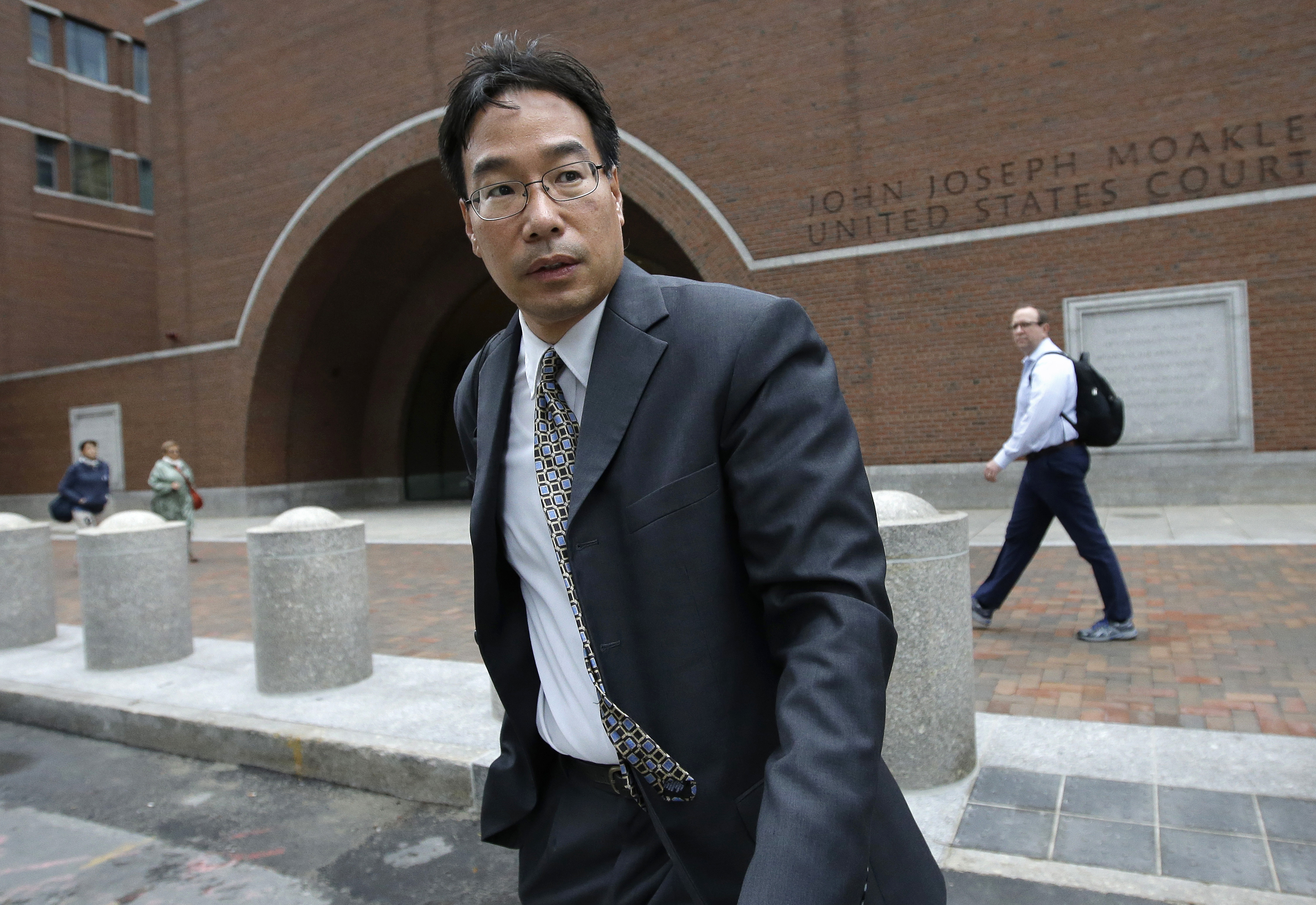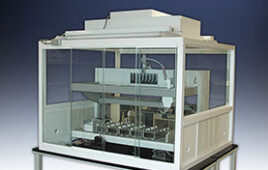A special agent from the U.S. Department of Defense introduced an email as evidence in the trial of a pharmacist accused of second-degree murder; the email stated that the defendant had ample warning that his company’s practices were “a disaster waiting to happen.”
Glenn A. Chin, the supervisory pharmacist said to be involved in the 2012 meningitis outbreak that killed 64 people and sickened more than 700 others throughout the U.S., is facing federal trial in Boston. The former New England Compounding Center employee is being charged with second-degree murder and conspiracy, as well as other racketeering charges.
U.S. Department of Defense Special Agent Sara Albert testified that a warning email — dated June 21, 2012 — between Barry J. Cadden, former co-owner and president of the NECC, and Glenn Chin was retrieved, along with over a dozen others, from the New England Compounding Center’s records. Emails were also recovered from Chin’s personal email account. The emails discussed issues such as shipping drugs before they’d been tested, the use of expired ingredients, and sending out drugs that had never undergone testing in the first place.
Read more: Testimony in Deadly Meningitis Trial Continues
Albert also discussed Chin’s resume, retrieved during the investigation, which stated that he had been a supervising pharmacist at NECC since at least 2009. However, Chin’s attorneys challenged this after an FBI agent stated that Chin was supervising the cleanroom in 2009, stating that previous testimony had established that he didn’t taken on the cleanroom supervisor role until at least a year later.
Cadden and Chin conversed through several other emails about practices in the NECC’s cleanrooms, firing offending employees rather than giving them second chances, and not getting “caught with our pants around our ankles … ever.”
“We can’t do what you are currently doing any more. No exceptions,” Cadden stated in another email he had sent to Chin.

Glenn Chin, the supervisory pharmacist at the now-closed New England Compounding Center, departs federal court after attending the first day of his trial, Tuesday, Sept. 19, 2017, in Boston. Chin is charged with second-degree murder and other crimes under federal racketeering law for his role in the 2012 fungal meningitis outbreak that killed 76 people and sickened hundreds of others. Image: AP Photo/Steven Senne
In other testimony, Dr. Edward Washabaugh of Michigan Pain Specialists detailed how the meningitis outbreak began to develop at the clinics where he had provided injections of the compounding pharmacy’s methylprednisolone acetate into patients’ spines and joints. He described how patients had suffered strokes and heart attacks after having to take antifungal medications victims — five of his own patients died, out of 19 total deaths from his clinic.
Chin and his lawyers also disputed FBI testimony that suggested he attempted to flee the country in 2014. Chin was arrested at Logan Airport in Boston in September 2014 and charged with mail fraud (he would be charged with second-degree murder three months later). Chin’s legal team countered that he was flying to Hong Kong to go to a wedding, and asked why their client was arrested at the airport rather than being questioned several days prior when the authorities first discovered that he’d purchased a plane ticket.
Read more: Cleanroom Manager Pleads Not Guilty in Meningitis Case
Chin’s trial comes six months after Barry J. Cadden, former co-owner and president of the New England Compounding Center in Framingham, Mass., was acquitted of murder in March 2017. Cadden was facing 25 counts of second-degree murder. The jury heard nine weeks of testimony and then deliberated for five days before presenting their verdict. Cadden was convicted of racketeering and fraud charges in June 2017, and was sentenced to nine years in prison — he is currently serving his time in low-security federal penitentiary in Pennsylvania.




